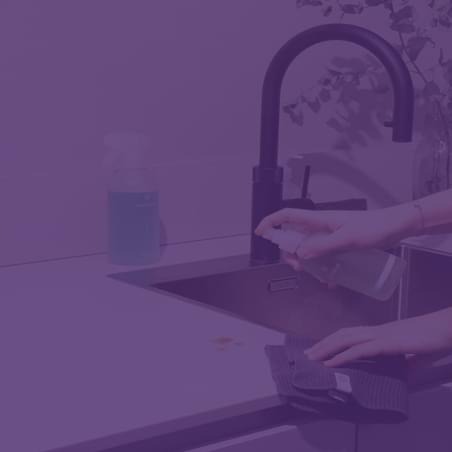Insights

17 Feb, 2026
Five Products: When World’s Collide. The Changing Face of Cleaning
Read More
Dan Jenkins, Head of Agile
25 Jul, 2023 | 2 minutes
It’s become a rather mundane topic, but it need not be the case. I believe that organizations have the chance to turn agile practice into a catalyst for creativity. And that means more disruptive and more distinctive new product development.
Its impact is all pervasive, attracting substantial investment and an abundance of cheap and rapid market research solutions. The big attractions are of course its speed and cost-effectiveness. Concept tests can be cracked within a few hours. Product tests, including our own, boast real time reporting for clients who need to know yesterday. But where do we go from here?
Intense competition in this space has created commoditization, making agility a basic expectation rather than a distinguishing factor.
It’s all beginning to look a bit threadbare.
While agility has revolutionized the research industry in terms of speed and cost, I don’t believe it has made research outcomes any better. Many tech-led solutions merely automate simplistic methodologies that research agencies have offered for decades. The lack of significant advancements in quality insights has left a void in the market. It’s time to acknowledge that agile must drive creativity, not smother it!
A parallel stream of investment in Research Technology (ResTech) is mashing AI, video, hybrid data, and analytics to drive better research outcomes and increase return on investment for clients.
Surprisingly, there has been little interplay between the agile research and ResTech streams of investment. Most agile research solutions continue to rely on outdated methodologies, failing to tap into the potential offered by these advances. Bridging this gap could lead to more sophisticated and impactful research outcomes, enriching the agile research landscape and benefiting clients.
I believe that we’re now at the start of the next era of agile research. As competition intensifies and advancements in artificial intelligence (AI) continue to unfold, agile solutions will offer not just speed and cost-efficiency, but also differentiation and substantial improvements in research quality.
In the next few years, the term ‘agile’ will lose its usefulness as providers integrate complex and flexible methodologies into their offer, responding to client demands for better insight.
To succeed in this dynamic marketplace, research agencies must resist the race to commoditize basic research methods. Instead, they must double down on their unique selling points and deploy agility as tool to enhance their clients' experience. Let’s face it, there is nothing like a short deadline to focus everybody’s minds. I have seen firsthand how creative agile approaches inject energy into innovation workstreams, with difficult decisions made more quickly.
Clients should demand more, challenging their agile allies to deliver richer and more predictive insights across a broader range of their business questions.
At MMR, we’re working on a more positive agile future with systems that energize brand teams, stimulate creativity, and prioritize commercial focus. Put simply, we want to make the agile innovation experience more fun.
We’re bringing the benefits of agility to solutions that integrate our unparalleled expertise in sensory precision into the innovation process. Instead of relying on decades old ubiquitous metrics we have built our toolkit around new, academically proven proprietary KPIs that shoot for long-term consumer adoption.
We use the latest developments in ResTech and AI to engage and amplify the voice of the consumer. By investing in technology and a global network of trusted partners we can simplify and streamline the complexities of physical product testing.
Agile research has undoubtedly reshaped the market research landscape, offering speed and cost-effectiveness. However, the promise of "better" research outcomes remains largely unrealized. MMR is committed to pushing the boundaries of agile research by developing systems that enhance the research experience while incorporating forward-looking metrics. This holistic approach empowers businesses to develop, optimize and launch new products with confidence, driving sustainable growth and customer satisfaction.
The transformative potential of agile research can be fully realized by prioritizing the integration of advanced metrics that capture nuanced consumer behavior and market dynamics, enabling businesses to thrive in the dynamic marketplace of the future.